Abstract
This experiment attempted to disentangle response-rate reductions controlled by the direct suppressive effects of a punisher from those due to negative reinforcement of response omission. Key-peck responding of pigeons was maintained by a conjoint variable-interval 3-min schedule of food presentation variable-interval 30-s schedule of response-dependent electric shock presentation. Omission of responses for 5, 10, or 30 s resulted in the possibility of canceling a scheduled shock. Response rates were a function of required pause duration, with lower rates occurring when longer periods of response omission were required for shock cancellation. These results show that, with several parameters of punishment held constant, response rates were controlled by the negative reinforcement contingency. Such a finding argues for renewed consideration of the role of negative reinforcement in punishment contingencies.
Keywords: punishment, negative reinforcement, response-dependent shocks, response omission, avoidance, variable-interval schedule, response pacing, key peck, pigeons
Full text
PDF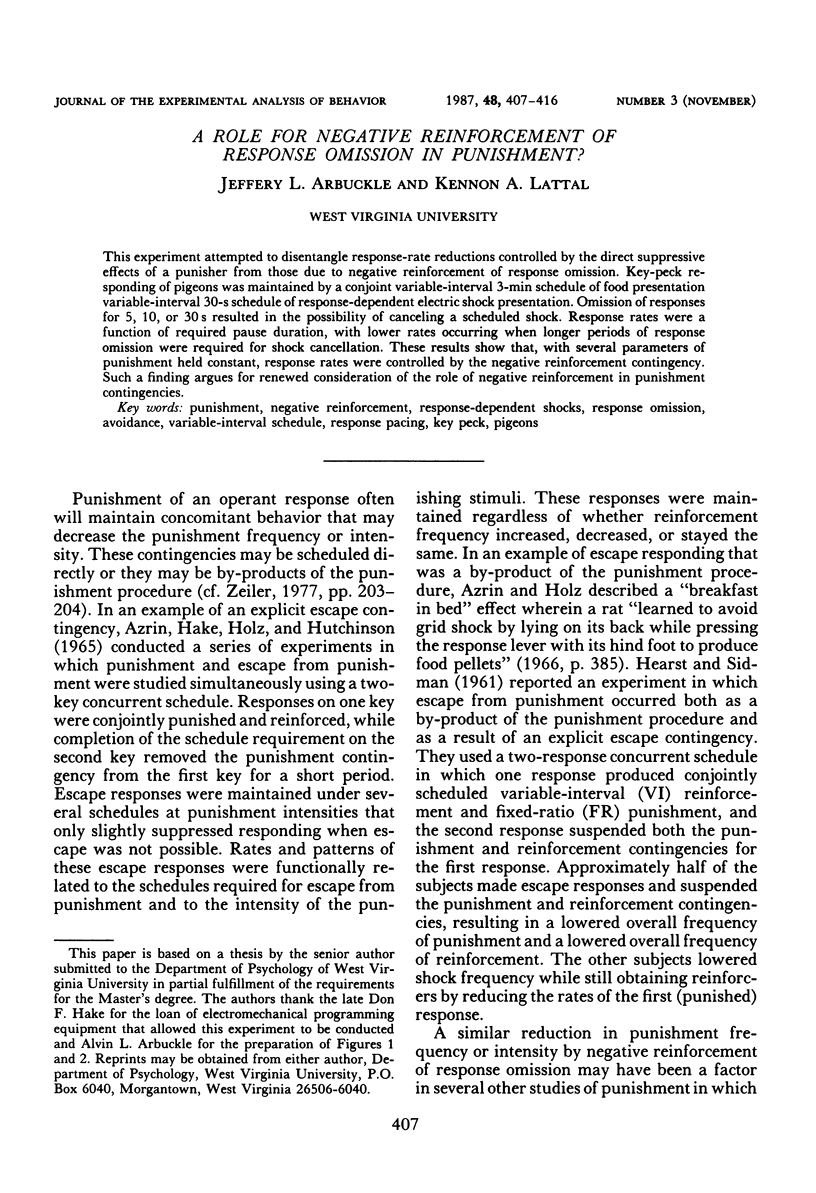
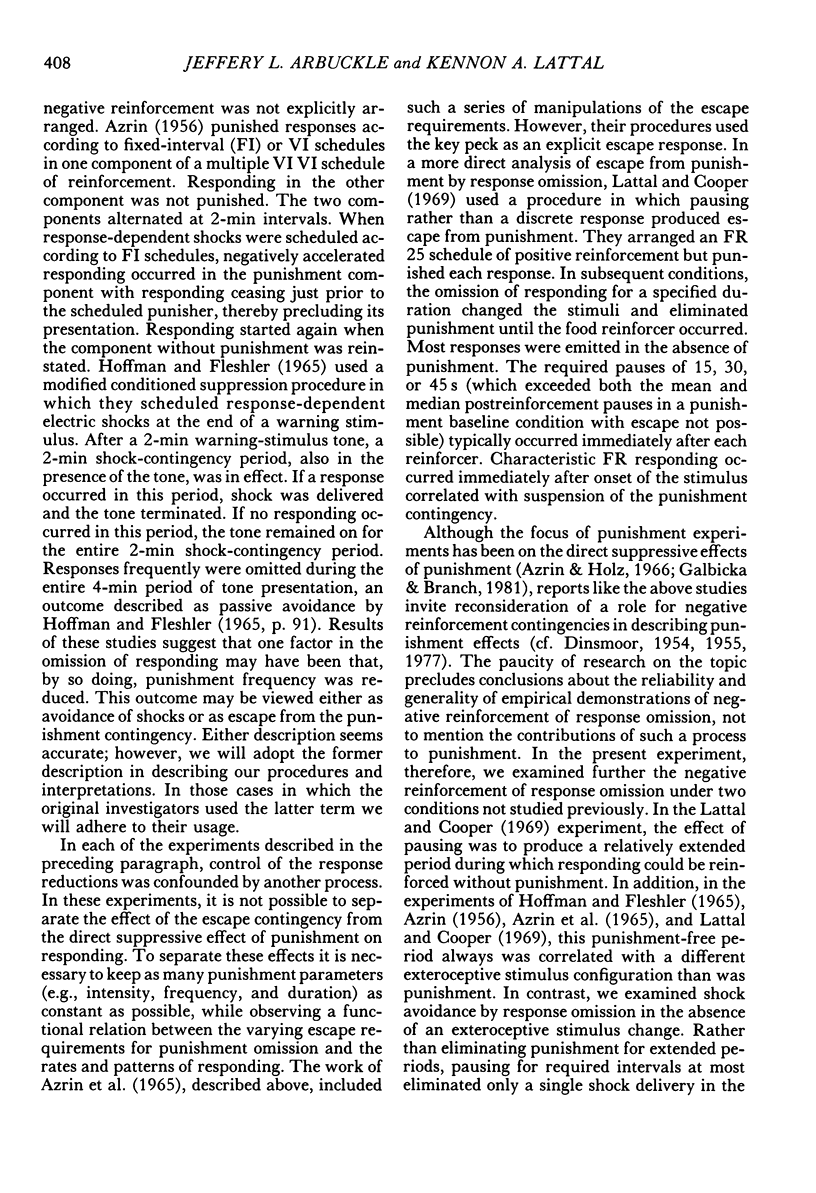
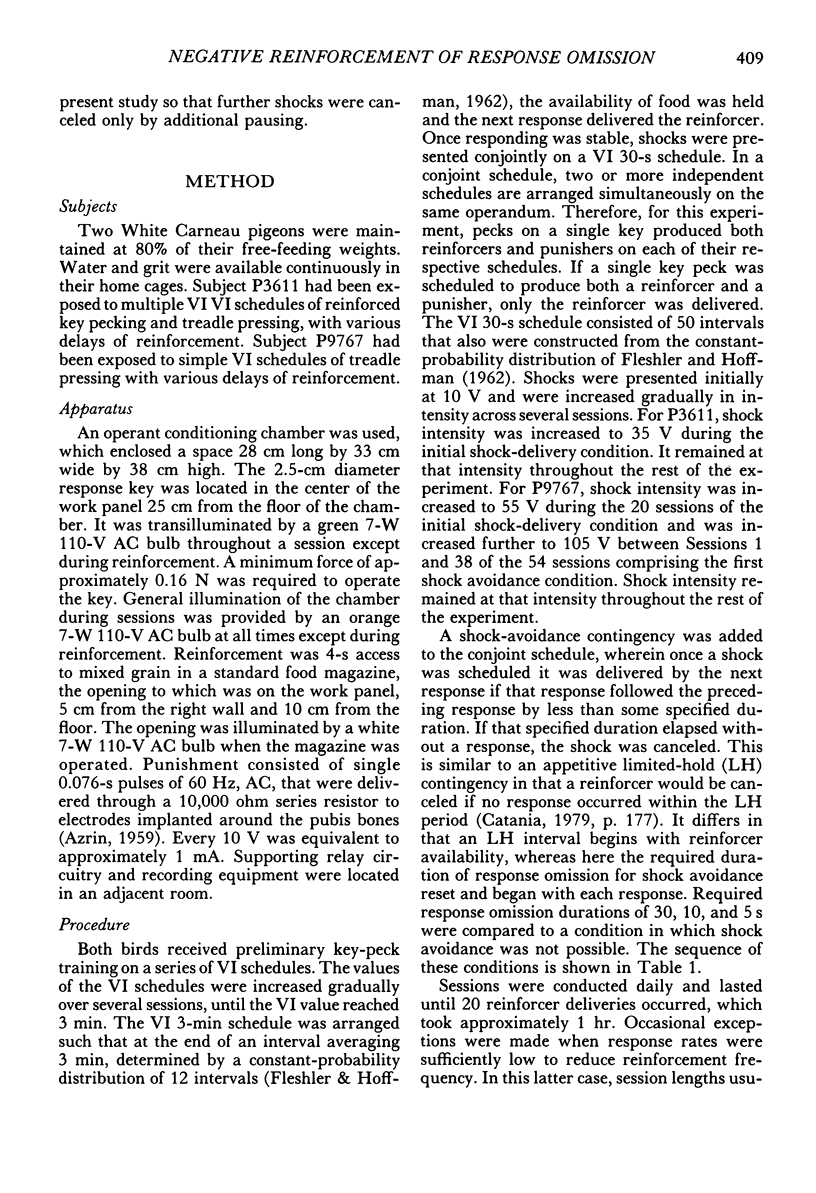
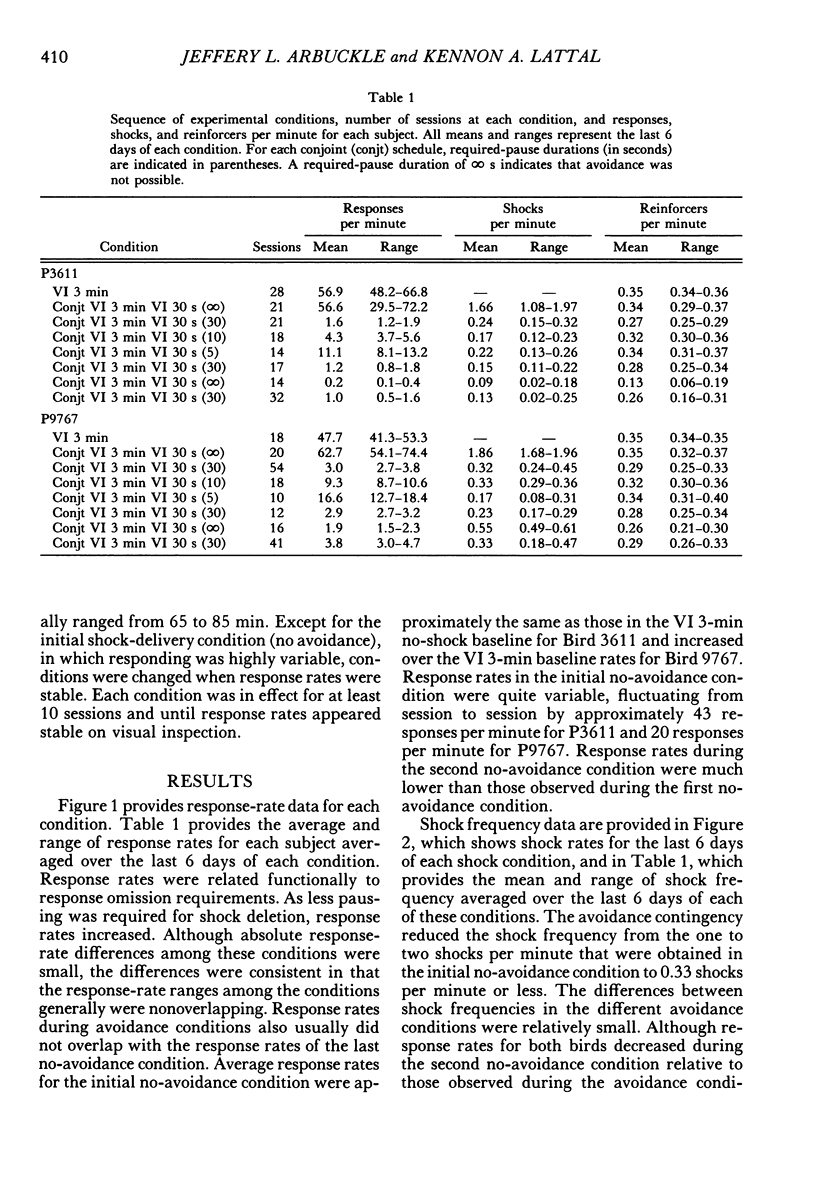
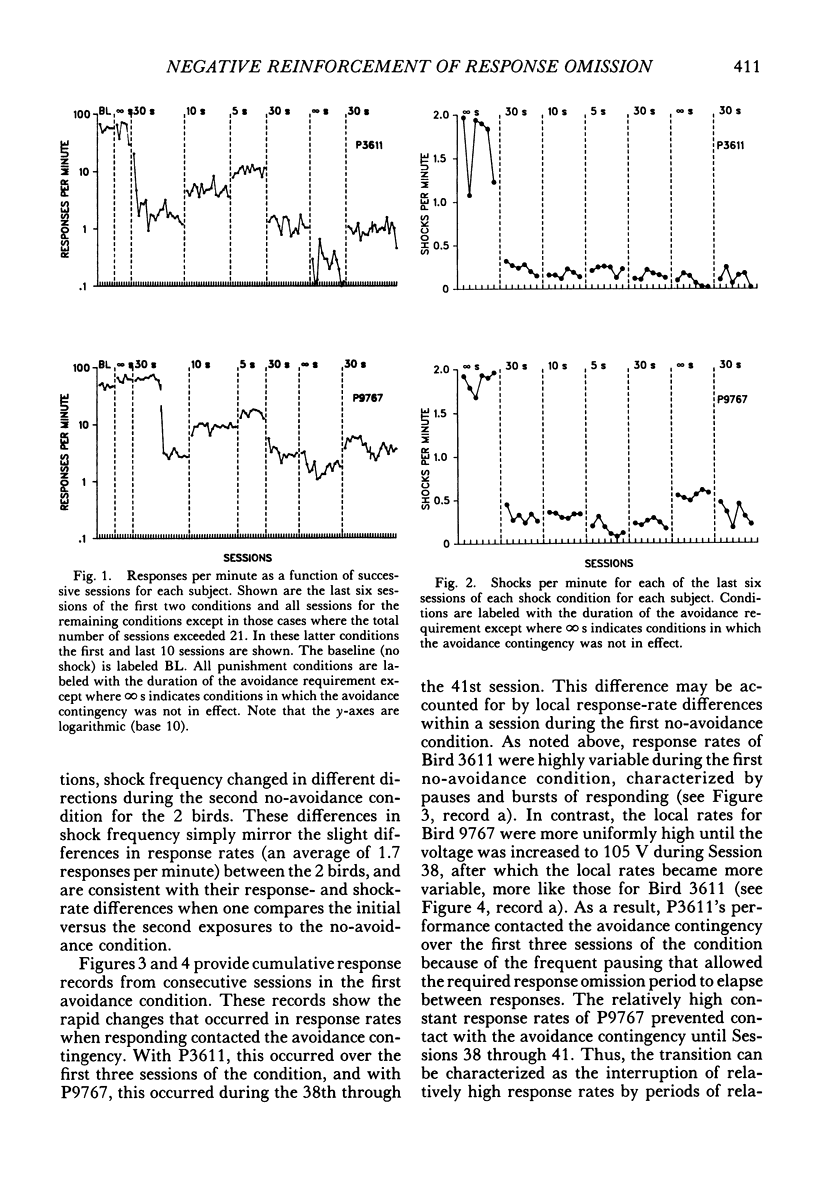
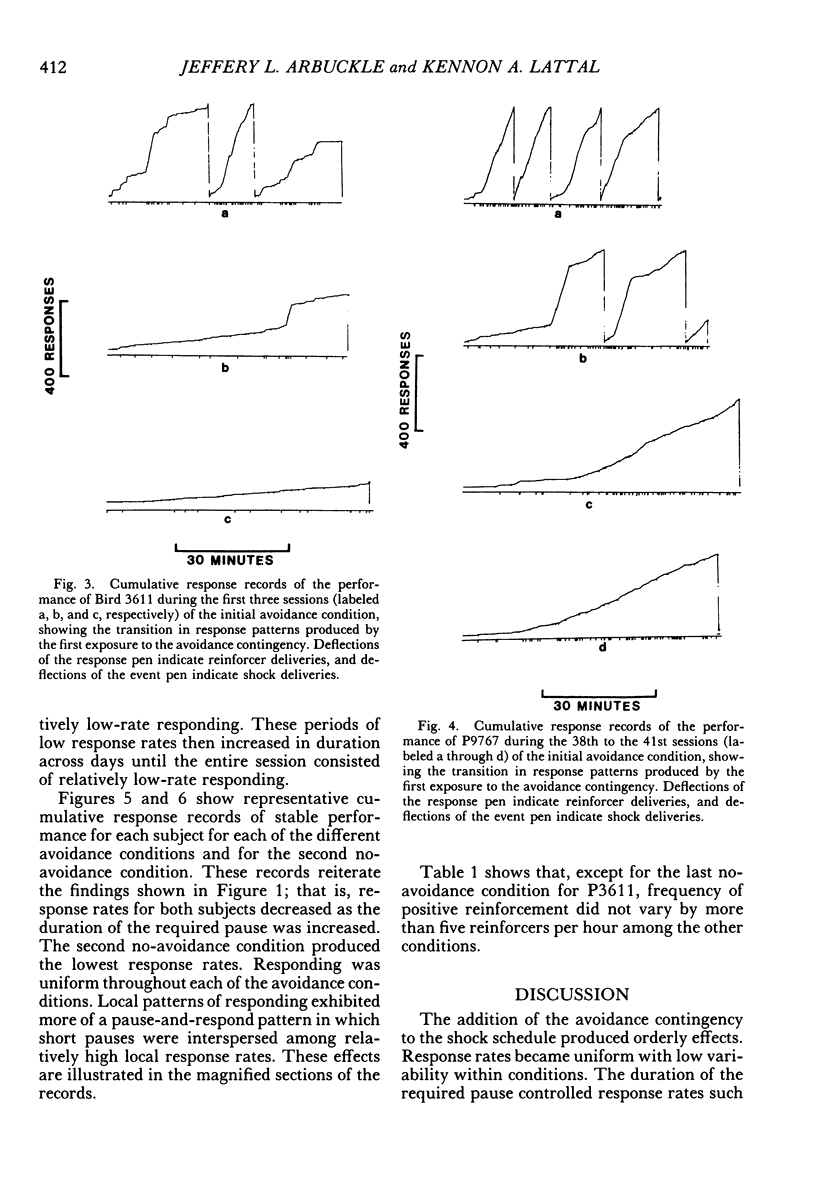
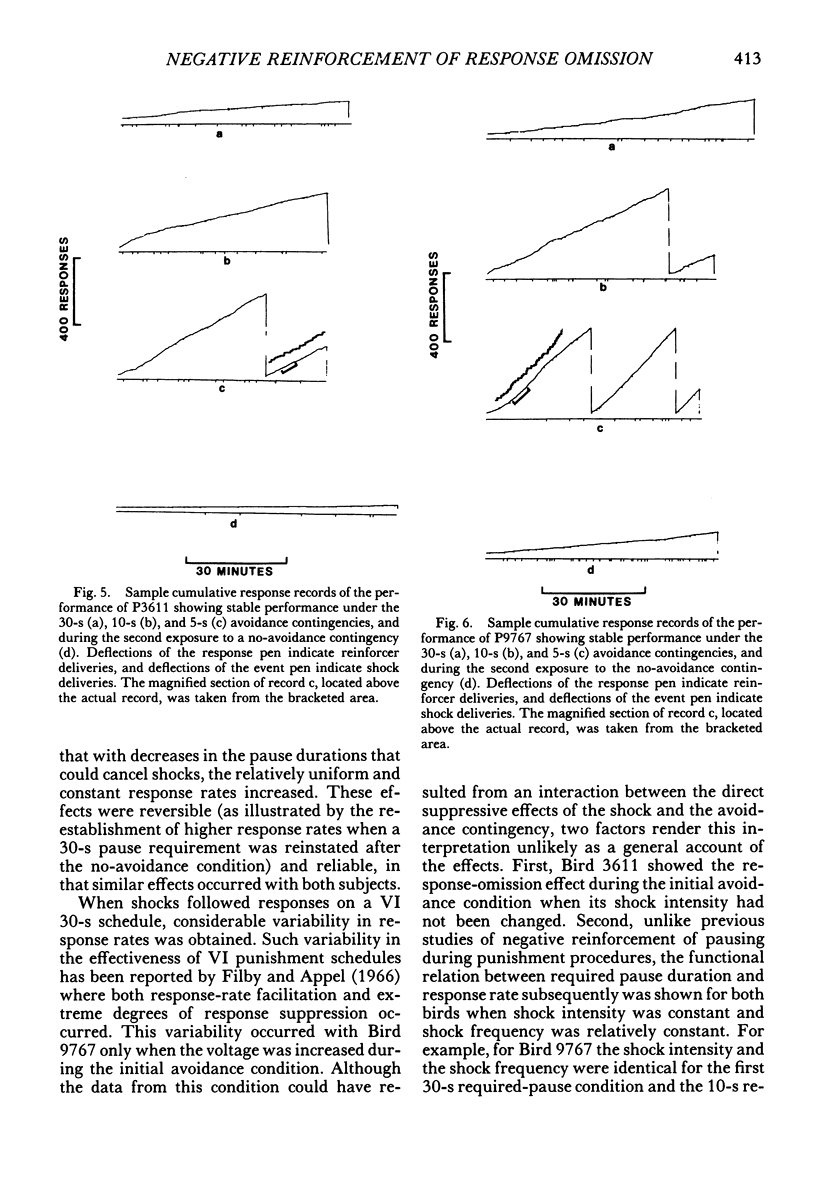
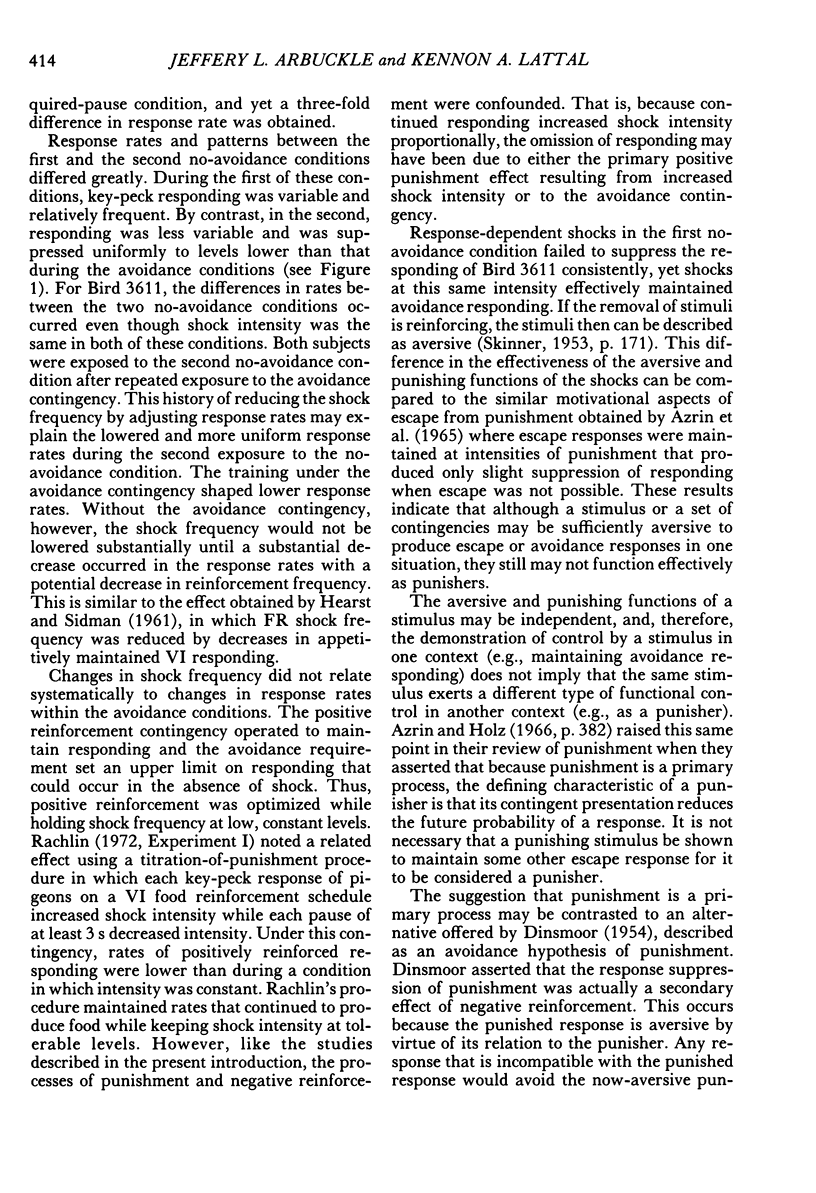
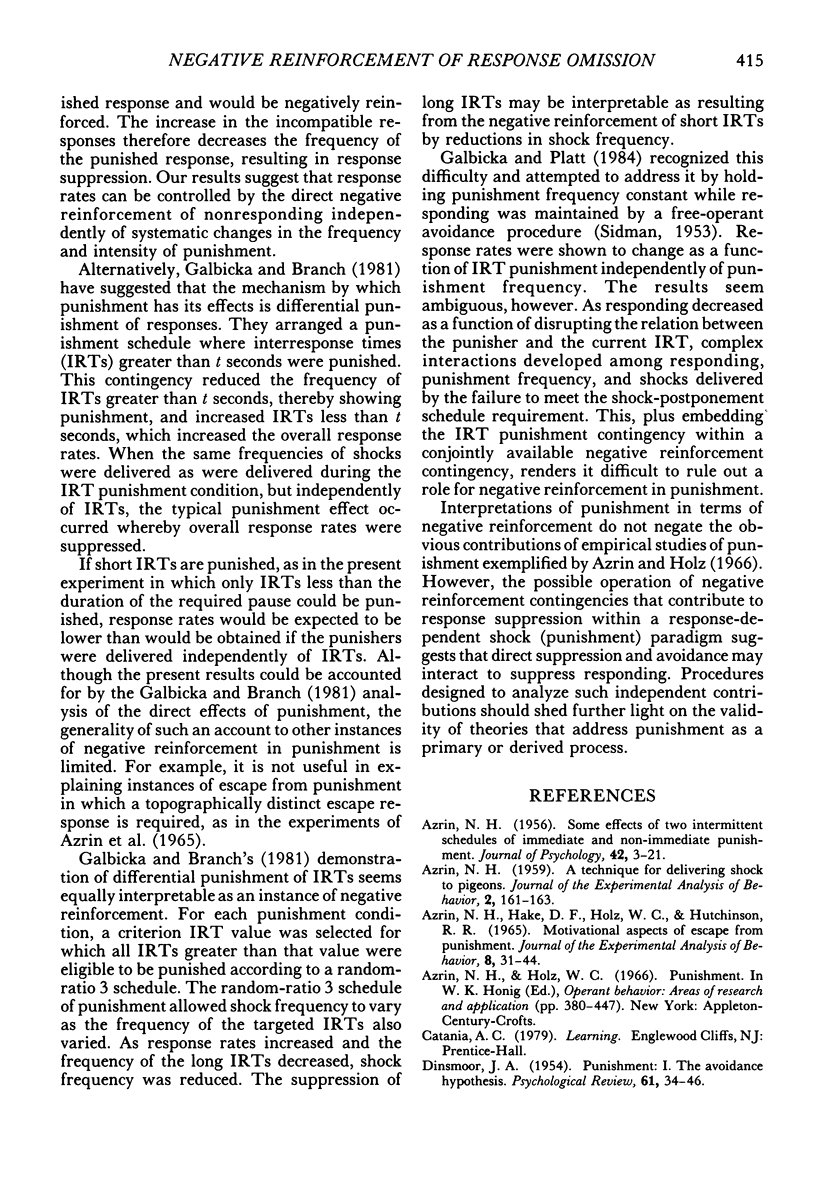
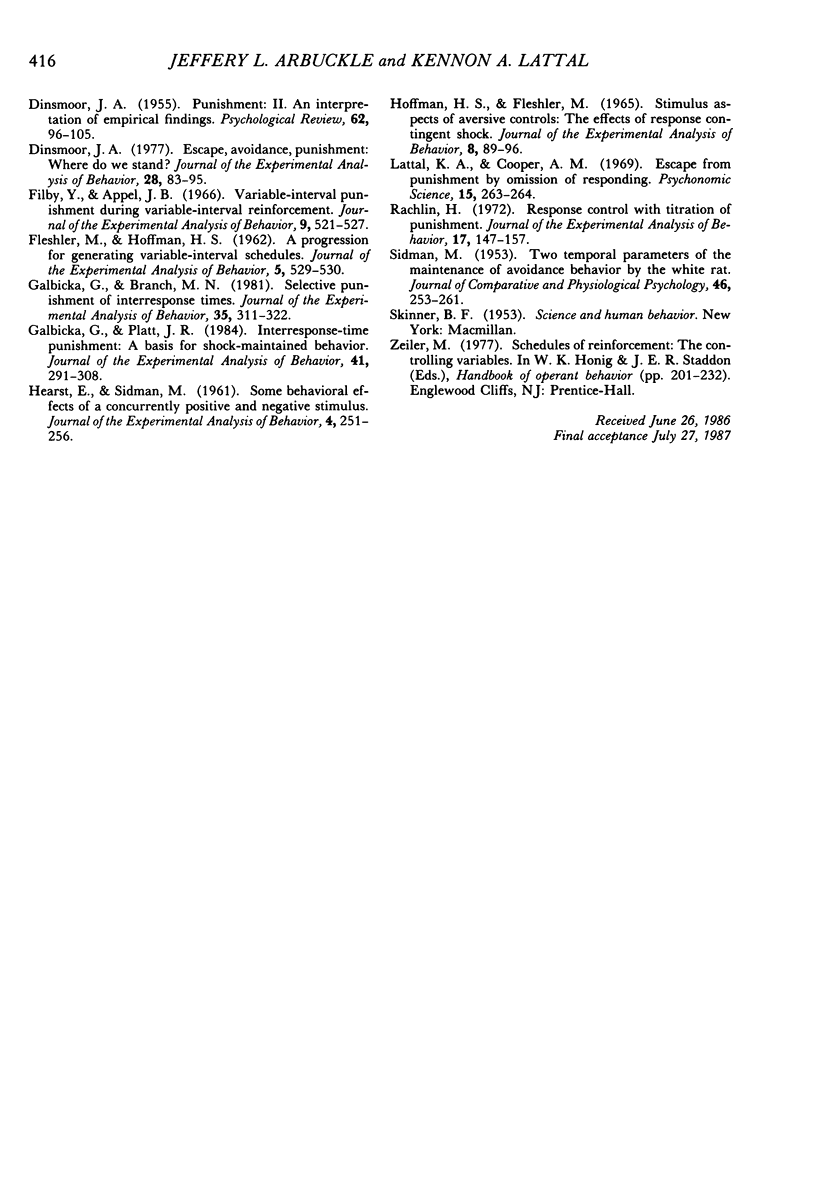
Selected References
These references are in PubMed. This may not be the complete list of references from this article.
- AZRIN N. H. A technique for delivering shock to pigeons. J Exp Anal Behav. 1959 Apr;2:161–163. doi: 10.1901/jeab.1959.2-161. [DOI] [PMC free article] [PubMed] [Google Scholar]
- AZRIN N. H., HAKE D. F., HOLZ W. C., HUTCHINSON R. R. MOTIVATIONAL ASPECTS OF ESCAPE FROM PUNISHMENT. J Exp Anal Behav. 1965 Jan;8:31–44. doi: 10.1901/jeab.1965.8-31. [DOI] [PMC free article] [PubMed] [Google Scholar]
- DINSMOOR J. A. Punishment. I. The avoidance hypothesis. Psychol Rev. 1954 Jan;61(1):34–46. doi: 10.1037/h0062725. [DOI] [PubMed] [Google Scholar]
- DINSMOOR J. A. Punishment. II. An interpretation of empirical findings. Psychol Rev. 1955 Mar;62(2):96–105. doi: 10.1037/h0041258. [DOI] [PubMed] [Google Scholar]
- Dinsmoor J. A. Escape, avoidance, punishment: where do we stand? J Exp Anal Behav. 1977 Jul;28(1):83–95. doi: 10.1901/jeab.1977.28-83. [DOI] [PMC free article] [PubMed] [Google Scholar]
- FLESHLER M., HOFFMAN H. S. A progression for generating variable-interval schedules. J Exp Anal Behav. 1962 Oct;5:529–530. doi: 10.1901/jeab.1962.5-529. [DOI] [PMC free article] [PubMed] [Google Scholar]
- Filby Y., Appel J. B. Variable-interval punishment during variable-interval reinforcement. J Exp Anal Behav. 1966 Sep;9(5):521–527. doi: 10.1901/jeab.1966.9-521. [DOI] [PMC free article] [PubMed] [Google Scholar]
- Galbicka G., Branch M. N. Selective punishment of interresponse times. J Exp Anal Behav. 1981 May;35(3):311–322. doi: 10.1901/jeab.1981.35-311. [DOI] [PMC free article] [PubMed] [Google Scholar]
- Galbicka G., Platt J. R. Interresponse-time punishment: a basis for shock-maintained behavior. J Exp Anal Behav. 1984 May;41(3):291–308. doi: 10.1901/jeab.1984.41-291. [DOI] [PMC free article] [PubMed] [Google Scholar]
- HEARST E., SIDMAN M. Some behavioral effects of a concurrently positive and negative stimulus. J Exp Anal Behav. 1961 Jul;4:251–256. doi: 10.1901/jeab.1961.4-251. [DOI] [PMC free article] [PubMed] [Google Scholar]
- HOFFMAN H. S., FLESHLER M. STIMULUS ASPECTS OF AVERSIVE CONTROLS: THE EFFECTS OF RESPONSE CONTINGENT SHOCK. J Exp Anal Behav. 1965 Mar;8:89–96. doi: 10.1901/jeab.1965.8-89. [DOI] [PMC free article] [PubMed] [Google Scholar]
- Rachlin H. Response control with titration of punishment. J Exp Anal Behav. 1972 Mar;17(2):147–157. doi: 10.1901/jeab.1972.17-147. [DOI] [PMC free article] [PubMed] [Google Scholar]
- SIDMAN M. Two temporal parameters of the maintenance of avoidance behavior by the white rat. J Comp Physiol Psychol. 1953 Aug;46(4):253–261. doi: 10.1037/h0060730. [DOI] [PubMed] [Google Scholar]


